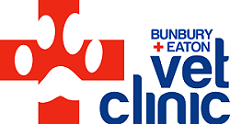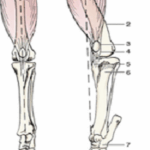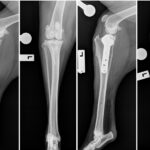One Medicine
A lot of people ask how vets manage to learn how to treat such a wide range of animals, when doctors only have to learn one species. The fact is that many animals use the same basic “blueprint”, and as vets the trick is to know where the differences exist, as most things are pretty similar.
This similarity actually extends to people as well. As vets, we see humans as “just another species”, and hence the medicine in people has a lot of similarities to medicine in cats, dogs and other animals. Did you know that the genes that divide an ant’s body into a head, thorax and abdomen are exactly the same genes that do the same to us?
The realisation that there are so many similarities between species has brought forward the concept of “One Medicine”. Basically, it means that vets are learning more and more from doctors, and doctors are learning from vets.
One of the areas we see the most benefit from this approach is in cancer patients. For example, each year in the US approximately 1000 people develop a type of bone cancer called osteosarcoma. In the same time, around 100000 dogs will develop the same tumour type. This gives us the exciting opportunity to learn about treating this disease in people and dogs.
Before the “One Medicine” concept became established, vets and doctors would independently research a disease with almost no cross-over of knowledge. This meant neither progressed as quickly as it could. It also meant a lot of research was performed in laboratory animals which were artificially given diseases, and the research then applied to human medicine. It also meant that funding was difficult to obtain for veterinary research as it wasn’t as lucrative an area.
Now, with One Medicine, we are seeing the knowledge applied both ways. Using the bone cancer example, human researchers have potential access to 100000 cases to learn from and trial different treatment, while veterinary researches have access to improved funding, and the knowledge gained flows back to benefit animals. And in the meantime, the number of lab animals used is reduced. A real win-win situation. In fact, some human Oncologists now spend 2-3 days per week working with Veterinary Oncologists so they can learn from our animal patients.
For vets to keep up to date with their knowledge, they need a true dedication to continued learning. If your pet is ever diagnosed with cancer or any other serious condition, make sure your vet’s knowledge is right up-to-date.
Dr Braden Collins from the Bunbury Veterinary Clinic has undertaken additional training in Surgery and Medical Oncology, is a Member of the Veterinary Cancer Society, an affiliate member of the Veterinary Society of Surgical Oncology, a member of the Australian Small Animal Veterinary Association, and a Chartered Member of the Australian Veterinary Association.


